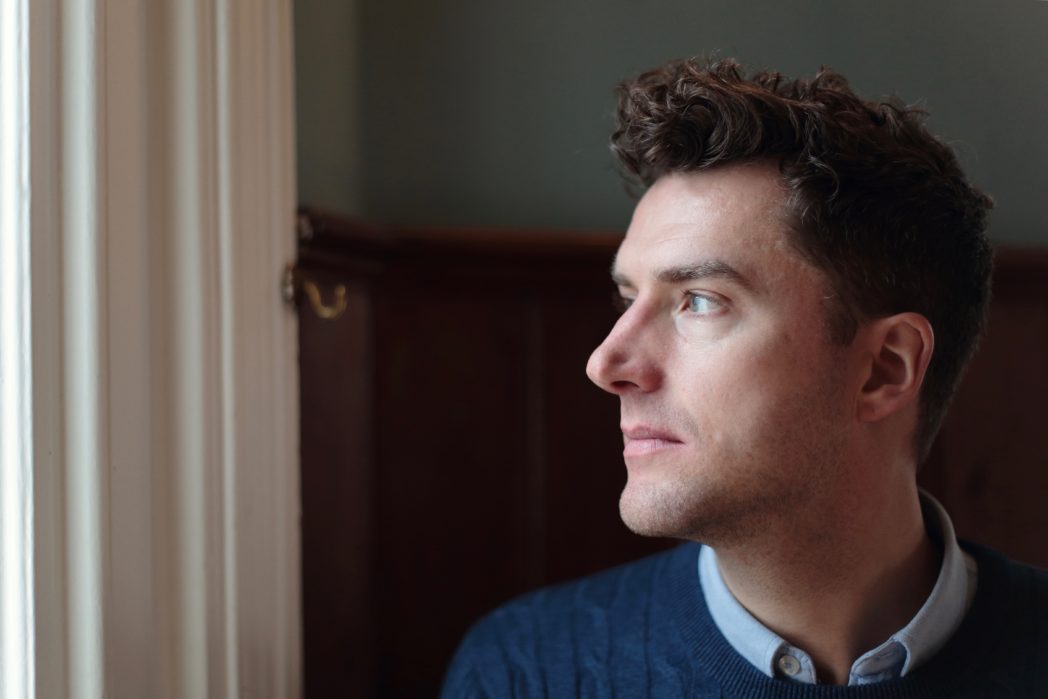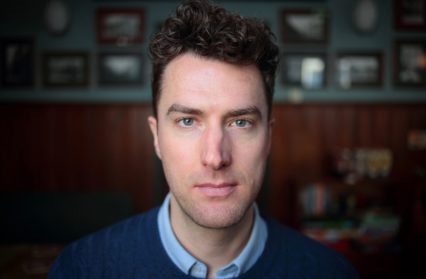In its 90-year history, the BBC National Orchestra of Wales has premiered over 100 new works. This month will see the launch of the first phase of a digital archive which will explore music written for and performed by the orchestra. As part of 90th birthday celebrations, BBC NOW will perform some of the new music it has championed in its lifetime with two concerts at BBC Hoddinott Hall, on February 21 and March 28.
The first of these concerts features a world premiere by former Composer-in-Residence Mark Bowden alongside works by former Composers-in-Association B Tommy Andersson, who will conduct the concert, and Simon Holt, who turns 60 this year.
Mark Bowden’s Three Interludes are a set of short orchestral interludes which explore ideas relating to the sea and are partly inspired by Matthew Arnold’s lyric poem Dover Beach. Below, Mark writes about what promises to be the start of a thrilling and intense musical – and dramatic – journey.
I was asked to contribute a piece for the BBC National Orchestra of Wales’ 90th birthday celebration concerts so I looked through my existing work trying to find something to fit. The orchestra has already played all my orchestral music over the years, and made recordings of three pieces, so I decided it would make more sense to write a new work for the occasion.
Three Interludes is a set of short orchestral sketches for a much larger work, an opera I’m currently writing for Welsh National Opera with Owen Sheers. The interludes are standalone works, but they will also provide means for depicting character, place and action as the opera develops. Composing these three short pieces has allowed me to make early explorations of musical material I am creating for the opera. I can’t say too much about the opera right now (partly because I haven’t written much of it yet!) but the interludes explore ideas relating to the sea and are inspired by Matthew Arnold’s lyric poem Dover Beach.
Arnold’s poem conjures in its opening lines the shore of Dover, facing out to Calais. The poem describes a calm sea upon which the light of the moon ‘Gleams and is gone’. However, the poem also points to a more disquieting sense of the sea: ‘Glimmering and vast’ in nature. In the opera, the first interlude is performed as an underwater city, The Deep, is revealed: a futuristic, technological dystopia in which people live below the surface of the ocean in a tightly controlled, automated and authoritarian society, never seeing the land and sky above. The music is largely derived from the opening gesture, an ascending flourish on upper woodwind and strings. The interlude is busy, dancing almost, with a sense of fiery anticipation. However, there are darker moments pointing towards a more foreboding undercurrent.

The second interlude, Shore, accompanies the protagonist of the opera as she is washed up, semi-conscious, on a coastline. As she comes round, she is confronted by an ugly, polluted wasteland instead of the paradise she is desperate to see. The music, a dark chorale for low strings and brass, ebbs and flows, occasionally punctuated by sinuous fragments of melody which grow in intensity as the music progresses. Devastated at the wasteland around her, our protagonist turns to leave the shore and return to her oceanic home, but in doing so she realises she is not alone.
The final interlude, Fleet, (which will actually appear before Shore in the opera) describes the protagonist’s journey from The Deep to a viewing platform where she can see and hear the land and sky above. She has heard stories of the beauty of the surface of the Earth and yearns to feel the air on her face, to hear birdsong. However, visiting the surface is forbidden for ordinary citizens of The Deep, she must be quick and deft to escape discovery! The music is largely fast and rhythmic, growing from a single-line melody which fragments across the orchestra.
The process of creating these interludes, written before setting any of the vocal music, has allowed me to imagine soundworlds, explore melodic ideas and create a harmonic palette for the opera, all of which will serve to unify the operatic material as I continue to write it. Although the interludes explore their own musical territory, there is a common harmonic idea at play across them. I have become increasingly interested in the concept of aligned cycles (a technique first identified by Alban Berg in a letter to Arnold Schoenberg), which is when two or more pitch cycles unfold against each other in the same direction but with different intervallic content resulting in a series of related chords. I have created my own cycles for the interludes; I’m hoping they continue to bear fruit for the rest of the opera!
I’m thrilled to share the concert with Simon Holt, whose music I have admired since childhood, as well as B Tommy Andersson, a superb composer who will also conduct the concert. My Three Interludes are dedicated to the memory of the wonderfully kind and dazzlingly talented Eva Stewart, the BBC National Orchestra of Wales’ Principal Piccolo, who sadly passed away last year.












